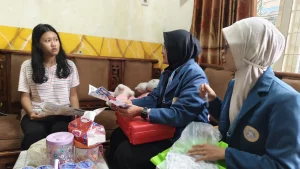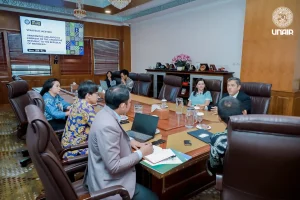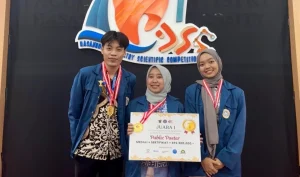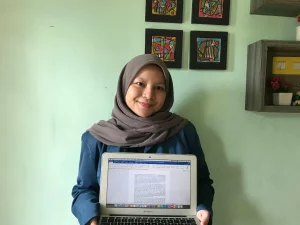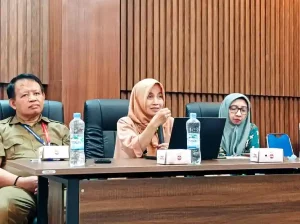UNAIR NEWS – From their concern to numerous cases of drug abuse among street children (anjal), five students of Universitas Airlangga have designed and proposed a student creativity program (PKM) entitled ” Social Network Based Street Children Empowerment as P4GN Effort (Prevention and Eradication of Drug Abuse and Circulation).
With the urgency of the selected problem, the PKMM proposal has passed the selection of Dikti and obtained developmental fund from Ministry of Research, Technology and Higher Education (Kemenristekdikti) for 2016-2017 PKM program.
This street children empowerment program is implemented by Nur Syamsiyah (2014), Dini Nurul Ilmiah (2014), Dewi Miftakhur Roifah (2014), Oktavimega Yoga (2014) and Hasna Putri Permana (2015). The PKMM focuses on creative education and building social network among street children.

The lessons were presented interactively, so the street children are also actively involved in the activity with outbound activities and creative simulation on the danger of drugs.
The presentation is more optimal when the children can define the dangers of drugs from their point of view based on examples of the user or former user experience.
This is also in line with the major theme of International Anti Narcotics Day commemorated on 26 June 2017, “Listen First”. The great theme emphasizes the education on the danger of drugs early on without dictating the children, but rather listening to their problems and providing room for them to be heard.
The implementation of this program was supported by many parties, including the Save Street Child Surabaya (SSC) Community, National Narcotics Agency of East Java Province, as well as Prof. Dr. Bagong Suyanto, M.Si as a child social expert and mentor of this program.
After four months of implementation in the Ambengan Selatan Karya, there was an improved understanding on the dangers and P4GN (Prevention and Eradication of Drug Abuse and Circulation)movement.
The program has formed anti-drug cadres among street children with the title “Satria Anti Narkoba” (SAN). The cadres are expected to understand the dangers of drugs and actions to be taken in cases of drug abuse in the neighborhood. Thus, street children can fortify themselves and their environment from the dangers of drugs. (*)
Editor: Bambang Bes


